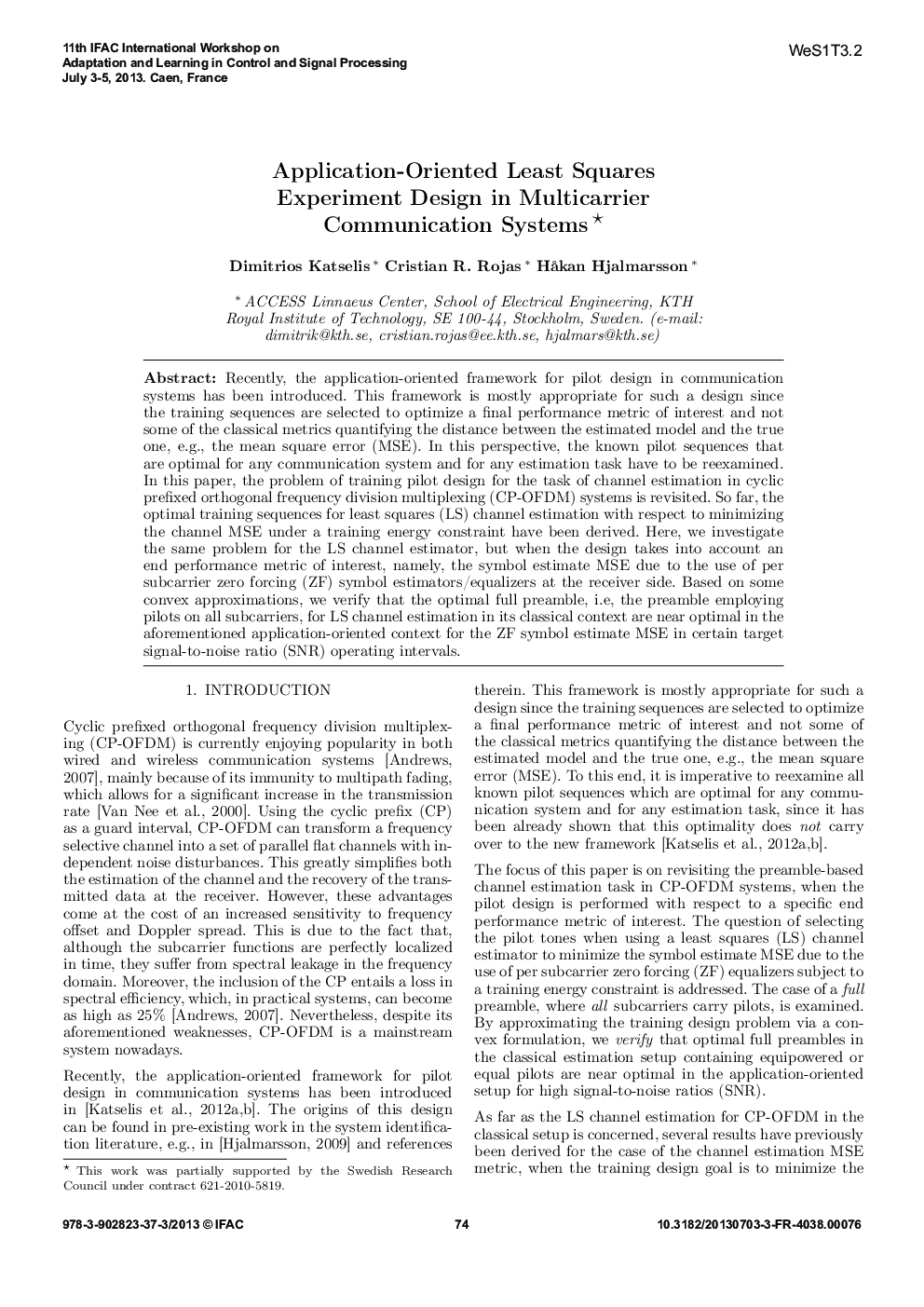| کد مقاله | کد نشریه | سال انتشار | مقاله انگلیسی | نسخه تمام متن |
|---|---|---|---|---|
| 712988 | 892161 | 2013 | 6 صفحه PDF | دانلود رایگان |

Recently, the application-oriented framework for pilot design in communication systems has been introduced. This framework is mostly appropriate for such a design since the training sequences are selected to optimize a final performance metric of interest and not some of the classical metrics quantifying the distance between the estimated model and the true one, e.g., the mean square error (MSE). In this perspective, the known pilot sequences that are optimal for any communication system and for any estimation task have to be reexamined. In this paper, the problem of training pilot design for the task of channel estimation in cyclic prefixed orthogonal frequency division multiplexing (CP-OFDM) systems is revisited. So far, the optimal training sequences for least squares (LS) channel estimation with respect to minimizing the channel MSE under a training energy constraint have been derived. Here, we investigate the same problem for the LS channel estimator, but when the design takes into account an end performance metric of interest, namely, the symbol estimate MSE due to the use of per subcarrier zero forcing (ZF) symbol estimators/equalizers at the receiver side. Based on some convex approximations, we verify that the optimal full preamble, i.e, the preamble employing pilots on all sub carriers, for LS channel estimation in its classical context are near optimal in the aforementioned application-oriented context for the ZF symbol estimate MSE in certain target signal-to-noise ratio (SNR) operating intervals.
Journal: IFAC Proceedings Volumes - Volume 46, Issue 11, 2013, Pages 74-79